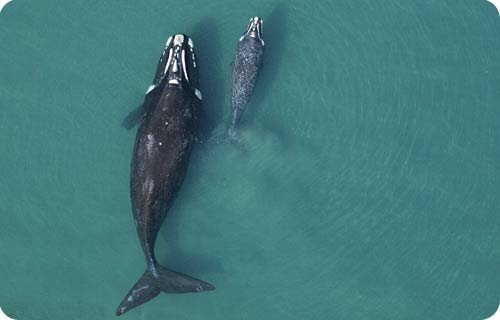Cetacean Investigation- Southern Right Whales of Argentina - How you can help

![]()
- Support conservation based, research organizations.
Many organizations offer opportunities for you to support their research, conservation and education programs by donating money or adopting a whale. We provided our members with materials to successfully organize discussion for dissertation of such issues. You receive regular updates and newsletters, and information about your adopted animals in return. For more information go to:
- Instituto de Conservacion de Ballenas (ICB)
ICB is based in Buenos Aires, Argentina. Their work is specifically dedicated to the education, conservation and research of the South American population of southern right whales. They offer the opportunity to adopt one of the many known individuals.
www.icb.org.ar - Whale and Dolphin Conservation Society (WDCS)
WDCS is a voice for the protection of whales and dolphins, and their environment. WDCS work with local researchers around the world and promotes numerous ways to become involved in their programs. You can adopt a whale or dolphin of your choice, volunteer or donate money and become a member.
www.wdcs.org - International Fund for Animal Welfare (IFAW)
IFAW works to protect whales and their environment around the world and is active in working with local NGOs in promoting regulated whale watching activities. They run an international whale research vessel "Song of the Whale", to raise awareness.
www.ifaw.org - New England Aquarium
The New England Aquarium focusÕs research on the critically endangered North Atlantic right whale, and promotes sustainable whale watching in New England, USA. www.neaq.org
Go to the North Atlantic Right Consortium website to learn more about this species.
www.rightwhaleweb.org
- Instituto de Conservacion de Ballenas (ICB)
- Volunteer
Non-profit, Non-Governmental oOrganizations (NGO) are always looking for volunteers and interns. By volunteering your time and skills to work with an NGO, you receive experience that assists in admission to higher education programs and an increase in employment options. In addition you receive the opportunity to work with the animals, while directly contributing to valuable research, education and conservation efforts.
- Go whale watching
The most effective way to help whales is to enjoy a whale watch trip. Choose a whale watch with an educator or naturalist onboard, and do a little research to ensure it is a well-regulated operator. As well as offering the opportunity to see whales close up in their natural environment, whale watching provides the opportunity to learn more about whales around the world, and specifically about the issues surrounding the population you are watching.
Whale watching is rapidly making coastal communities around the globe a magnet for a growing number of "eco-tourists", who are willing to pay to watch whales in their natural habitat. Whale watching is one of the fastest nature-based tourism activities in the world today. For example, Peninsula Valdes in Patagonia, Argentina supports one of the oldest and largest whale watching industries in the southern hemisphere. Between 1991 and 2004, the number of tourist watching whales in the region increased 450%. In addition to learning more about whales, supporting the whale watch industry contributes directly to sustainable coastal development. The more a region focuses on gaining economic benefits from whales without affecting their populations, the better we are all positioned to learn about the complex interactions between these animals and their ecosystems. This is especially relevant in coastal regions, where so many peoples depend on the ocean that we share. Increased support for whale watching, in turn supports the creation of whale sanctuaries and marine protected areas. This is the best signal to the rest of the world that a region stands for conserving whales and is against hunting them, and in turn, this publicity helps draw more tourists to the whale-watching industries of many countries. A region's commitment to the goal of long-term conservation of marine biodiversity, through the recovery of whale populations is evident by its support of a whale watching industry.
